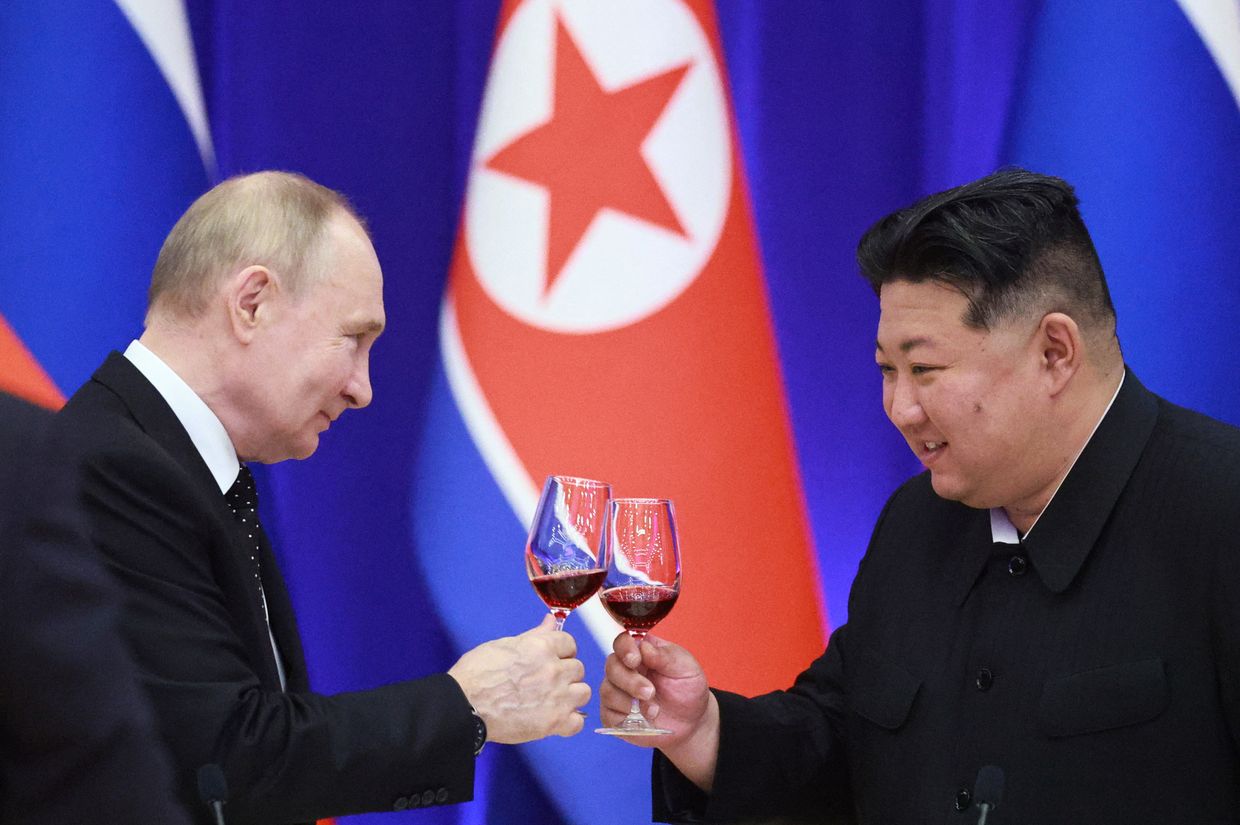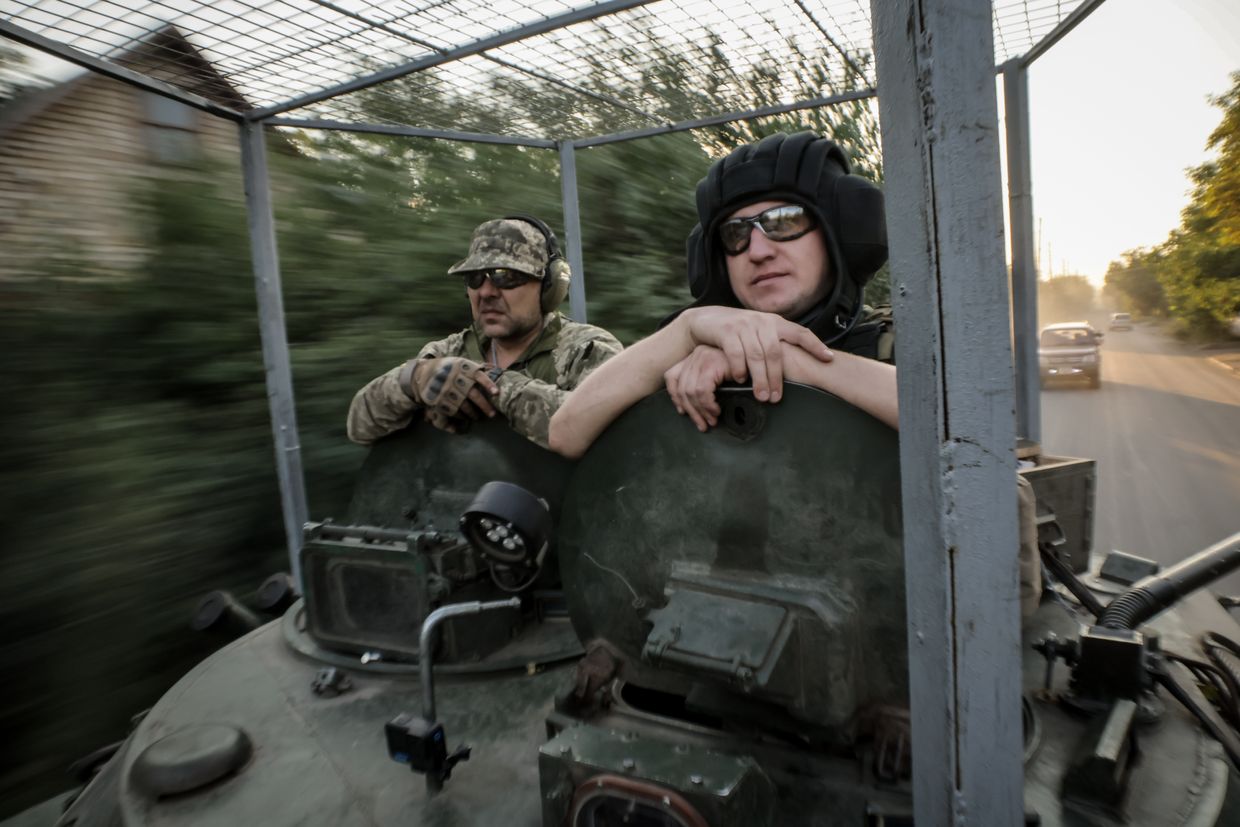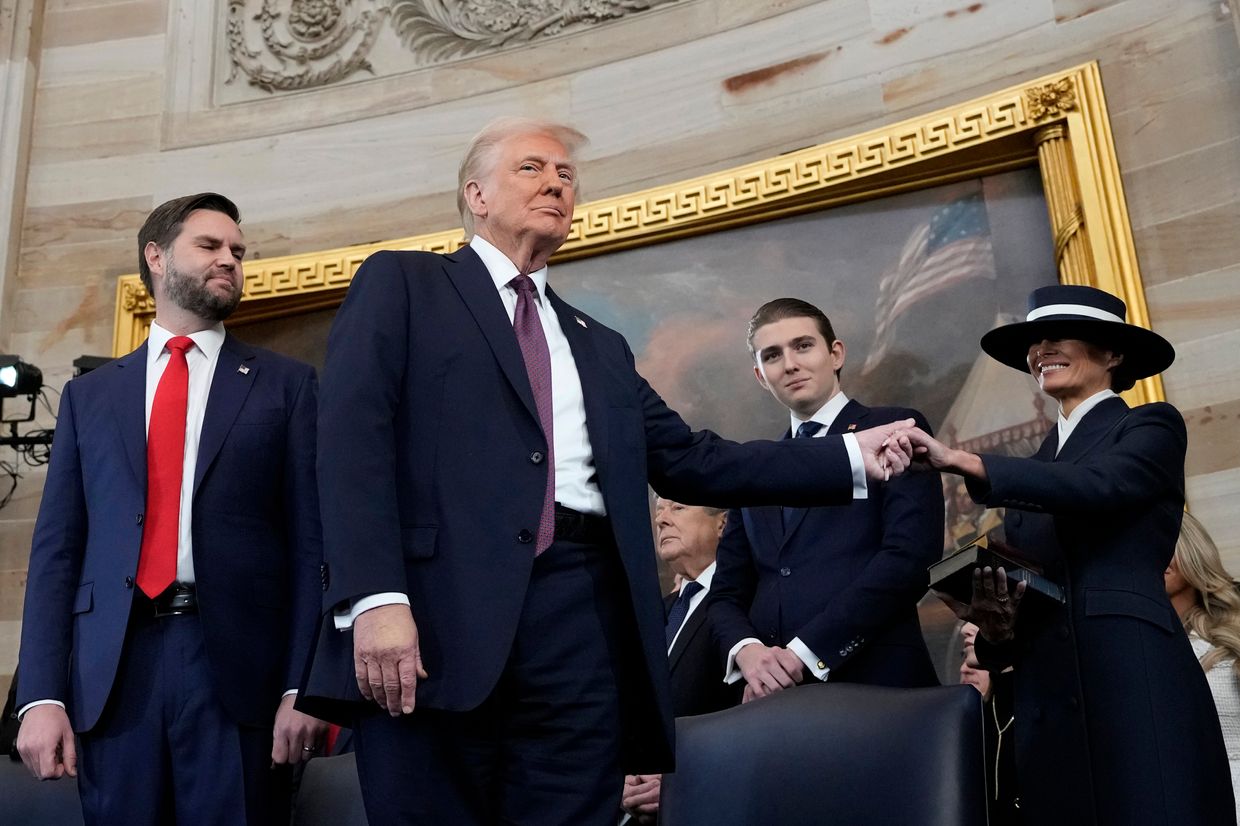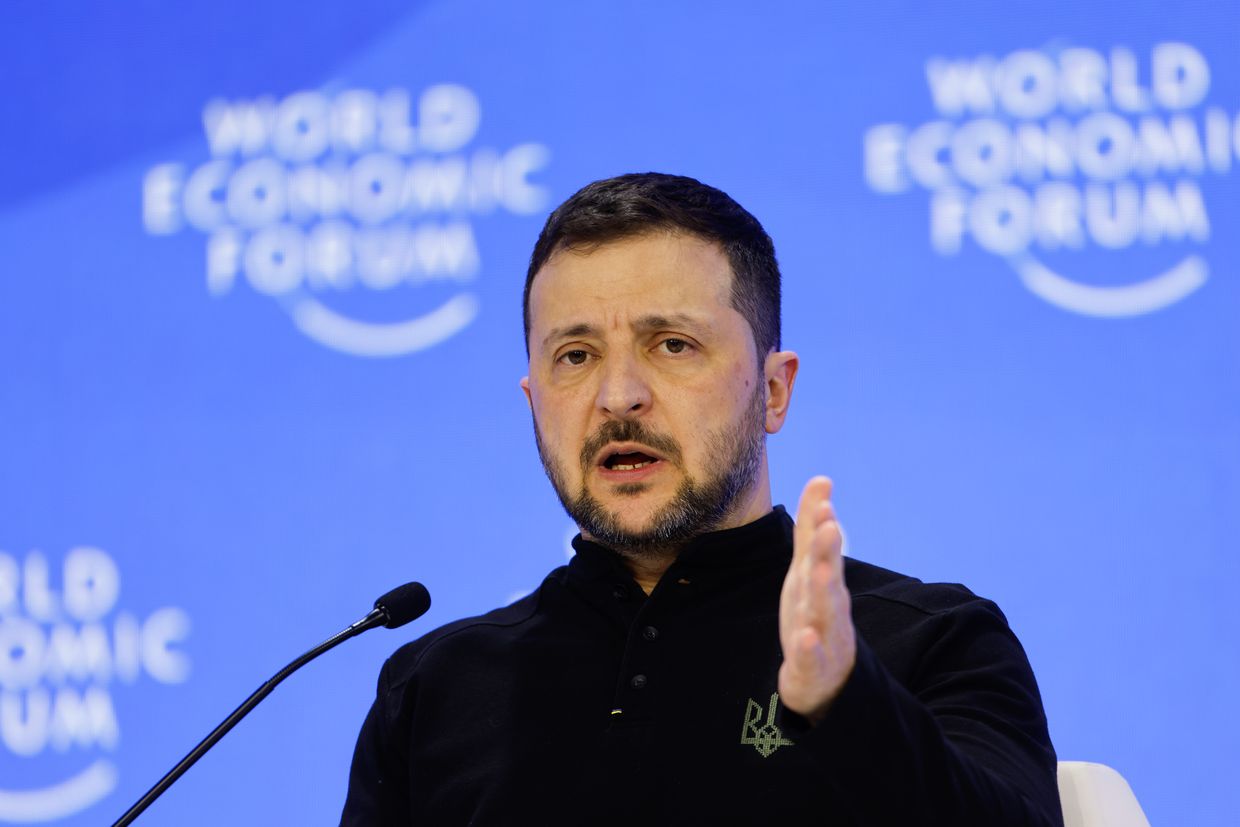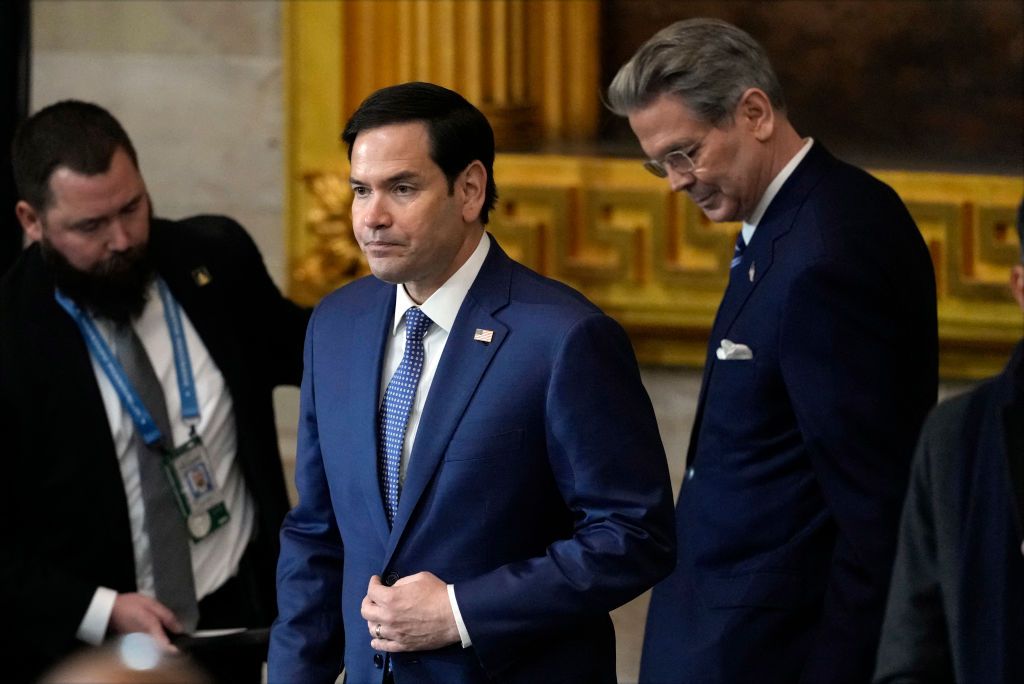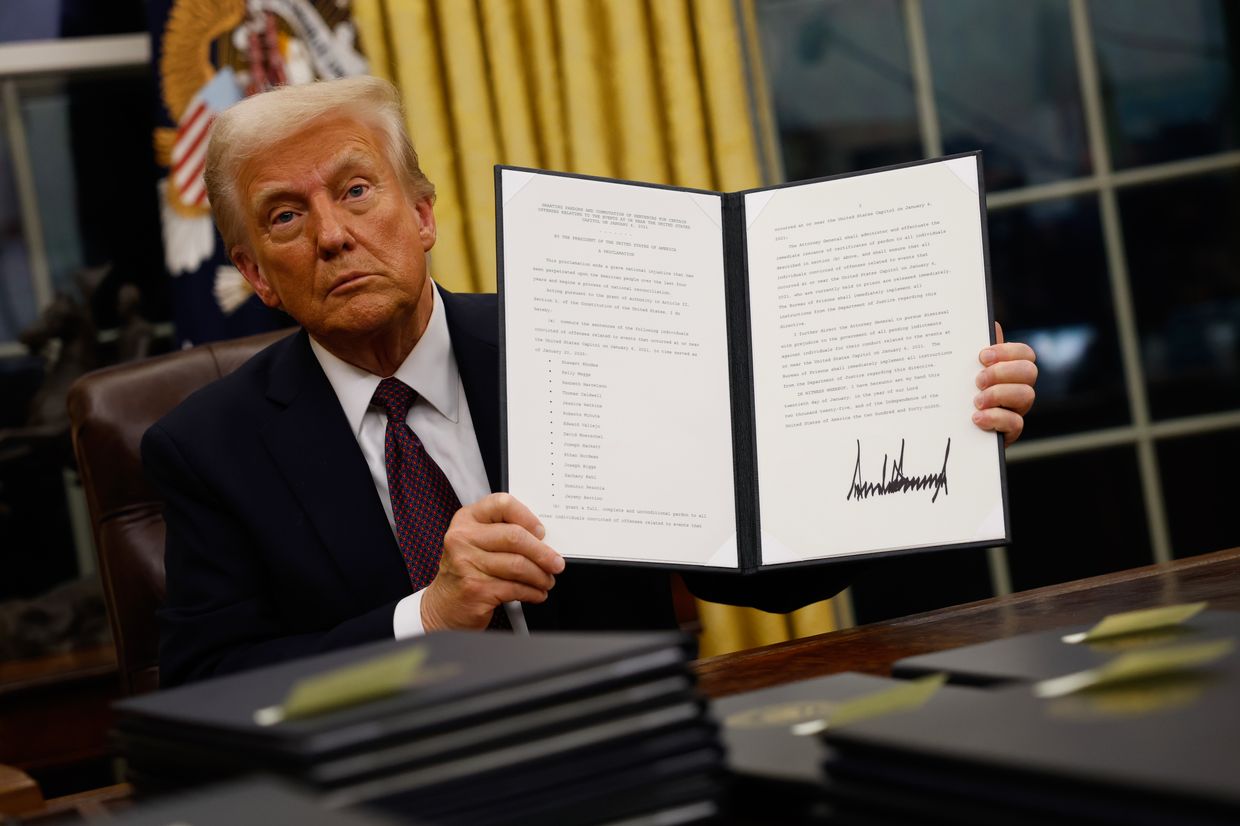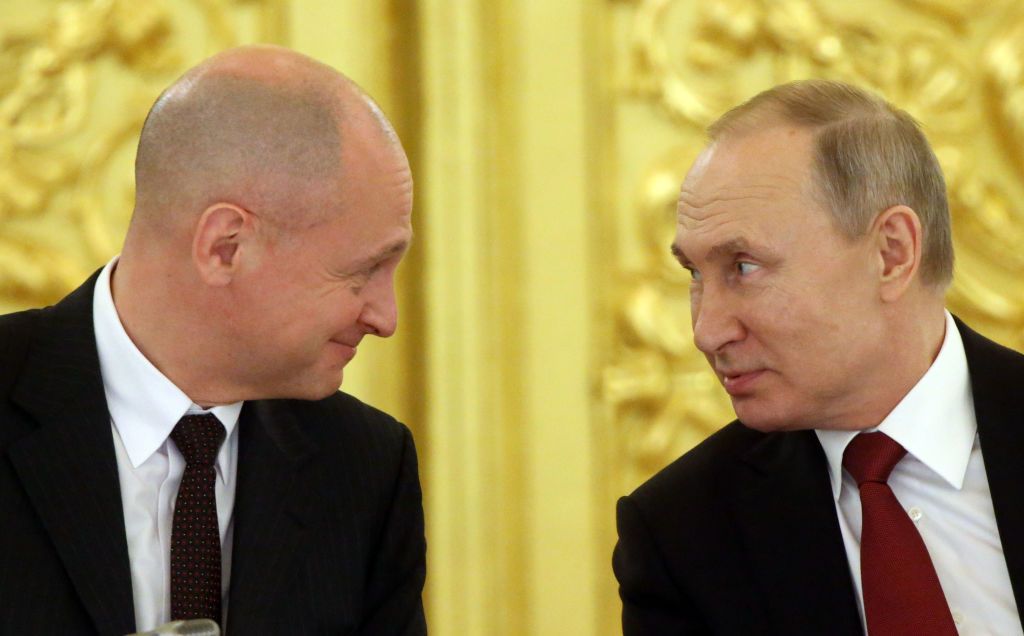Ukraine war latest: Ukraine's Special Forces say they killed 21 North Korean soldiers, show combat footage

Key developments on Jan. 22:
- Ukraine's Special Forces say they killed 21 North Korean soldiers, show combat footage
- Kyiv court arrests three senior officers accused of failed defense of Kharkiv Oblast
- Russia lacks manpower for major breakthrough in Ukraine, top NATO general says
- Russia issued ultimatum to Ukraine in 2022 to replace Zelensky with Medvedchuk, president says
- Western intelligence agencies kept contact with Russia during full-scale war, Zelensky says
- US seeks 'sustainable' peace in Ukraine to avoid new war in '2-4 years,' Rubio says
- 'We can do it the easy way or the hard way,' Trump says to Russia on ending the war in Ukraine
Warning: Footage includes violent and graphic content.
Soldiers of the 8th Regiment of Ukraine's Special Operations Forces resisted a North Korean assault in Russia’s Kursk Oblast for eight hours before retreating, killing 21 and wounding 40 soldiers, the unit said on Jan. 22.
The statement comes as Russia ramps up efforts to push out Ukrainian troops entrenched in the western Russian region, deploying its North Korean allies in ground assaults.
In a video shared by the Special Operations Forces, a large assault group of purportedly North Korean soldiers is seen crossing an open field and forest, followed by close combat footage with only dozens of meters between the two sides. In the end, graphic footage shows killed soldiers claimed to be North Koreans.
"At the ninth hour of the battle, the Special Operations Forces had only a third of their ammunition left. They spent the rest on destroying (North Korean forces)," the Telegram post read.
The Ukrainian fighters held off the assault with small arms, grenade launchers, and snipers. Eventually, the Ukrainian troops retreated in two Humvees, the post read.
North Korea deployed around 12,000 soldiers in Kursk Oblast, where Ukraine launched a surprise cross-border incursion in August 2024 to bring the war to Russian territory. North Koren troops have suffered 4,000 casualties, both wounded and killed, President Volodymyr Zelensky claimed earlier in January 2025.
In exchange for the troop transfer, Russia is paying over $2,000 for each North Korean soldier, though officials said it is unclear how much is allocated to individual soldiers and the Pyongyang government.
Kyiv court arrests 3 senior officers accused of failed defense of Kharkiv Oblast
A Kyiv court arrested General Yurii Halushkin, General Artur Horbenko, and Colonel Illia Lapin, three officers accused of leading an unsuccessful defense in Kharkiv Oblast during a Russian offensive last spring, Suspilne reported on Jan. 21.
Russia launched a cross-border offensive into northeastern Kharkiv Oblast in May 2024, swiftly moving forward by several kilometers despite Ukraine's efforts to fortify border regions.
Though the Russian offensive eventually stalled some 25 kilometers (15 miles) north of Kharkiv, its initial success sparked outrage against regional and military leaders for poor defense planning.
The three officers responsible for organizing the defenses were detained by the Security Service of Ukraine (SBU) on Jan. 20. They were accused of violating military regulations and not using all resources at their disposal to repel the Russian offensive.
"This led to the seizure of part of the territory in the eastern Ukrainian region, where fierce fighting is currently ongoing," the SBU said.
Halushkin commanded the Kharkiv Operational-Tactical Group, Horbenko led the 125th Territorial Defense Brigade that was deployed in the area, and Lapin commanded the brigade's 415th Battalion.
The three suspects were charged with negligence in military service and — in Horbenko's and Lapin's cases — carrying out unauthorized withdrawal from the battlefield. They face up to 10 years in prison.
"The charged officials did not ensure the fortification and engineering arrangements of defensive positions (in Kharkiv Oblast). They did not ensure proper organization of units during the battle," the State Bureau of Investigation said.
The suspects' lawyers protested the charges.
The trial comes against the backdrop of several scandals connected to poor command and organization in different brigades. Military mismanagement has often been cited as one of the key challenges plaguing Ukraine's Armed Forces as it faces the Russian advance in the east.
Russia lacks manpower for major breakthrough in Ukraine, top NATO general says
Russia lacks sufficient forces for a big breakthrough in Ukraine, NATO's Supreme Allied Commander in Europe, General Christopher Cavoli, said during a discussion on the sidelines of the World Economic Forum in Davos on Jan. 21.
"I'm not worried that Ukraine could suddenly lose. I don't see the potential for a massive (Russian) breakthrough," Cavoli said.
"And this is not a political but a military vision. It's got to do with both sides, the effective defenses that the Ukrainians have been putting in, but also the difficulty that the Russian side has in generating significant offensive forces to be able to exploit a potential breakthrough."
Russia quickly advanced in Ukraine's Donetsk Oblast in late 2024, making operationally significant gains near Toretsk, Chasiv Yar, and Kupiansk, as well as on its own soil in Kursk Oblast. Ukraine has struggled to contain the Russian offensive as Ukrainian forces are overstretched and dealing with manpower shortages.
Despite Russian advances, Cavoli said Russia's slow and incremental push is "exhausting" for Moscow's forces.
"After all, there is a reason why Russia brought thousands and thousands of soldiers from North Korea," he added, referring to the 12,000-strong North Korean contingent dispatched to Kursk Oblast.
"I think we're going to continue to see this tension between the desire to attack and the lack of manpower on the part of the Russians. I think that will largely define the conflict and force the Russians to use more weapons of deterrence, as we've seen them do in recent years."
The general also said that though it remains unclear whether the U.S. will continue providing military aid packages under the Trump administration, he pointed to the "very significant uplift in European aid" provided to Ukraine.
Recently inaugurated U.S. President Donald Trump criticized military aid for Ukraine during his campaign and, after his reelection, hinted at reducing it. Multiple media reports have nevertheless indicated that Trump does not intend to cut aid completely but wants to see Europe take up greater responsibility for Ukraine's security.
Russia issued ultimatum to Ukraine in 2022 to replace Zelensky with Medvedchuk, president says
Russia wanted to install pro-Kremlin oligarch Viktor Medvedchuk as Ukraine's president after forcing President Volodymyr Zelensky to step down, the Ukrainian head of state said on Jan. 22, citing a Kremlin ultimatum he received in the early days of the full-scale war.
"Some people came to me on the first days of the war, some people from Ukraine…They gave me the ultimatum from (Russian President Vladimir) Putin," Zelensky said on the sidelines of the World Economic Forum in Davos, Switzerland.
"They said that I have to go, and they will change me (for) Medvedchuk (as president)."
According to Zelensky, the ultimatum also demanded Ukraine recognize Russian occupation authorities in Donbas, change its constitution to commit to "neutrality," shrink its army to 50,000 troops, give up much of its weapon arsenal, and recognize Russian as an official language of Ukraine.
"This was not a negotiation; it’s an ultimatum," Zelensky said, adding that Russia’s points were similar to those later presented during unsuccessful peace talks in 2022 that took place in Turkey.
Formerly a Ukrainian lawmaker and businessman, Medvedchuk was among the leading pro-Russian figures in Ukraine before the full-scale invasion. He maintained close personal relations with Putin, who is the godfather of the oligarch's daughter.
Medvedchuk was detained by Ukrainian authorities in 2022 and exchanged with Russia later the same year.
Possible peace talks are again coming into focus as U.S. President Donald Trump vowed to bring Kyiv and Moscow to the negotiating table. Zelensky said earlier during the forum that his country will seek to achieve a quick but just peace this year.

Western intelligence agencies kept contact with Russia during full-scale war, Zelensky says
The U.S. and European countries remained in contact with Russia throughout the full-scale war, namely on the level of intelligence agencies, President Volodymyr Zelensky said on the sidelines of the World Economic Forum in Davos, Switzerland, on Jan. 22.
"The U.S. and Russia maintained contacts on various levels during the three years of the war… and Europeans too," Zelensky said in a meeting with international journalists.
Zelensky noted that "diplomacy has to have an isolationist quality, just like sanctions. If the leaders don't talk, but the intelligence agencies are constantly in touch, then, in principle, this may suit Russia."
The Western countries have largely cut official contacts with Russia following the outbreak of the full-scale war in 2022. The international isolation imposed on the Kremlin appears to be weakening as U.S. President Donald Trump announced his intention to meet Russian President Vladimir Putin to discuss a potential peace deal.
Commenting on the news that Trump plans to arrange a phone call with Putin, Zelensky said he is not surprised by Washington's efforts to establish contact with the Kremlin but believes Ukraine "should be the priority because we are the allies of the U.S."
Trump's new secretary of state, Marco Rubio, recently confirmed in an interview that the Trump administration will aim for a sustainable peace deal so that the war with Russia does not begin anew in two to four years.
Trump said earlier if Putin does not come to the negotiating table, Moscow may face fresh economic sanctions.
US seeks 'sustainable' peace in Ukraine to avoid new war in '2-4 years,' Rubio says
The Trump administration is working to attain a sustainable peace in Ukraine so that the war with Russia does not begin anew in two to four years, U.S. Secretary of State Marco Rubio said on Jan. 21.
"We are going to engage in making it (the war) end in a way that is sustainable, meaning we don't just want the conflict to end and then restart in two, three, or four years down the road," the recently confirmed top U.S. diplomat said on the CBS Mornings program.
"We want to bring stability."
U.S. President Donald Trump, who took office on Jan. 20, vowed to bring Kyiv and Moscow to the negotiating table and end the full-scale war nearing its third-year anniversary.
He has revealed few details on how he plans to achieve that goal, though Rubio repeatedly said that both Ukraine and Russia will have to make concessions.
"It is a stalemate. It's a war that was started by Russia, but it is now a stalemate, a protracted bloody conflict," Rubio said on CBS Mornings, adding that the war has been "incredibly destructive" for both Ukraine and Russia.
The secretary of state nevertheless said that Ukraine "is paying the biggest price of all to its energy infrastructure, to the people, the lives that are lost, to the millions of Ukrainians that have had to leave their countries and are living overseas."
Ukraine has struggled to contain the Russian advance as the battlefield began tilting in Moscow's favor in late 2024. Facing increasingly difficult manpower shortages, the Ukrainian military was forced to steadily cede ground to Russian forces in eastern Donetsk Oblast.
In turn, Russia is believed to have lost between 700,000-800,000 soldiers killed and wounded, though it demonstrated the capability to replace the losses with new contract soldiers. The country's economy also faces economic headwinds amid soaring inflation and tightening sanctions against its energy sector.
In a rare criticism, Trump said on Jan. 20 that Russian President Vladimir Putin is "destroying Russia" by not seeking a deal to end the war. The new U.S. president said he plans to soon meet his Russian counterpart, though he admitted uncertainty about whether the Kremlin's chief seeks a negotiated settlement.
Since his electoral campaign in 2024, Trump has repeatedly claimed that the full-scale invasion would not have started if he had been in office at the time and pledged to broker an end within 24 hours. He and his team have since shifted rhetoric and acknowledged complexities in resolving the war.
When asked about the expired 24-hour deadline, Rubio evaded commenting on any possible timeframe and merely said that ending the war would be the "priority" and "policy of the United States."
'We can do it the easy way or the hard way,' Trump says to Russia on ending the war in Ukraine
U.S. President Donald Trump called on Russia to "make a deal" to end the war in Ukraine on Jan. 22, warning that failure to reach an agreement would lead to increased sanctions, tariffs, and taxes on Russian goods.
"If a deal is not reached, I will have no other choice but to put high levels of taxes, tariffs, and sanctions on anything being sold by Russia to the United States and other participating countries," he posted on his social media platform Truth Social.
"We can do it the easy way or the hard way," said in reference to negotiating an end to the war, adding, "the easy way is always better."
While stressing that he is "not looking to hurt Russia" and maintaining that he has "always had a very good relationship" with Russian President Vladimir Putin, Trump added, "It's time to 'Make a deal. No more lives should be lost."
The statement comes as the Trump administration reportedly works on a sanctions strategy to advance a diplomatic solution to the conflict, Bloomberg reported on Jan. 16.
Two primary approaches are under consideration. The first involves offering targeted relief to sanctioned Russian oil producers as an incentive if peace negotiations advance. The second calls for significantly expanding sanctions to increase pressure on Moscow, according to Bloomberg.
His comments align with his previous vows to swiftly negotiate the war's end, though he has yet to present a detailed plan. When asked on Jan. 21 if he would impose additional sanctions if Putin fails to negotiate, Trump replied, "Sounds likely."
The Biden administration and the U.K. recently imposed their most extensive sanctions, targeting nearly 200 vessels in Russia's "shadow fleet," key oil companies, and related entities, further tightening the economic noose around Moscow.
Trump's efforts reportedly include plans to meet Ukrainian President Volodymyr Zelensky and consultations with Putin.


